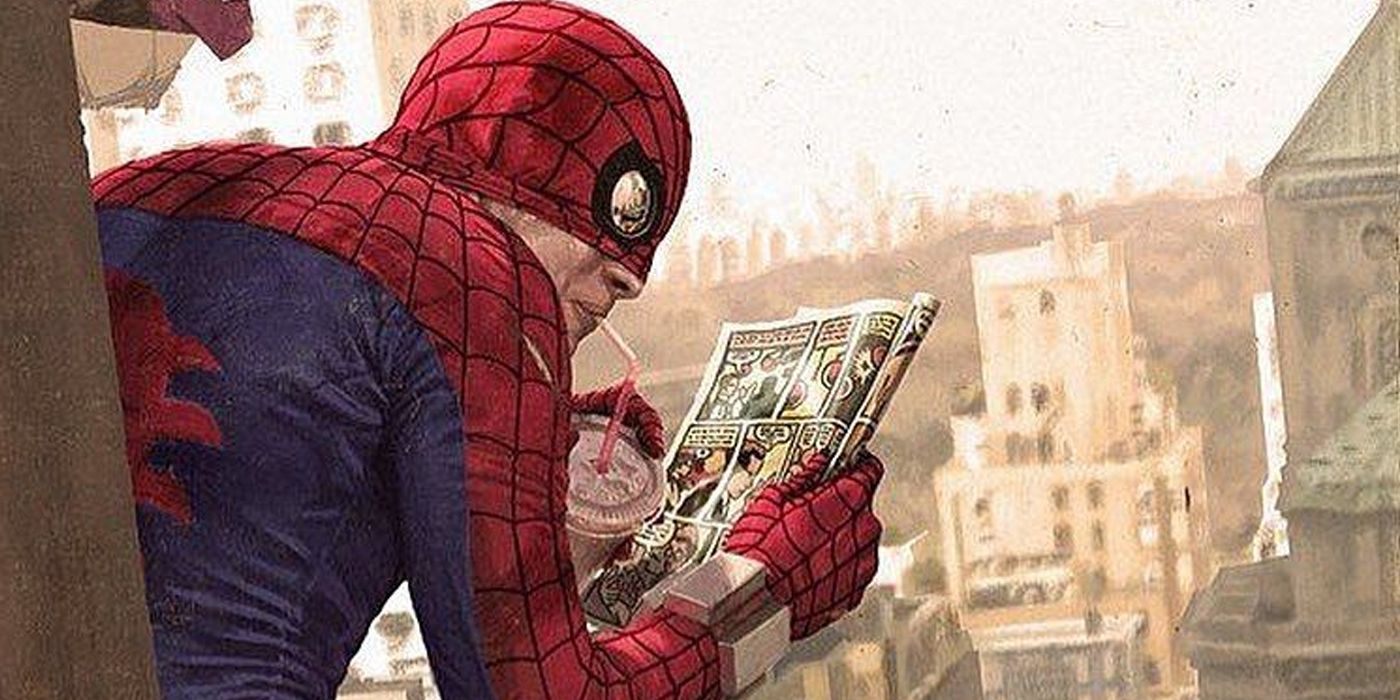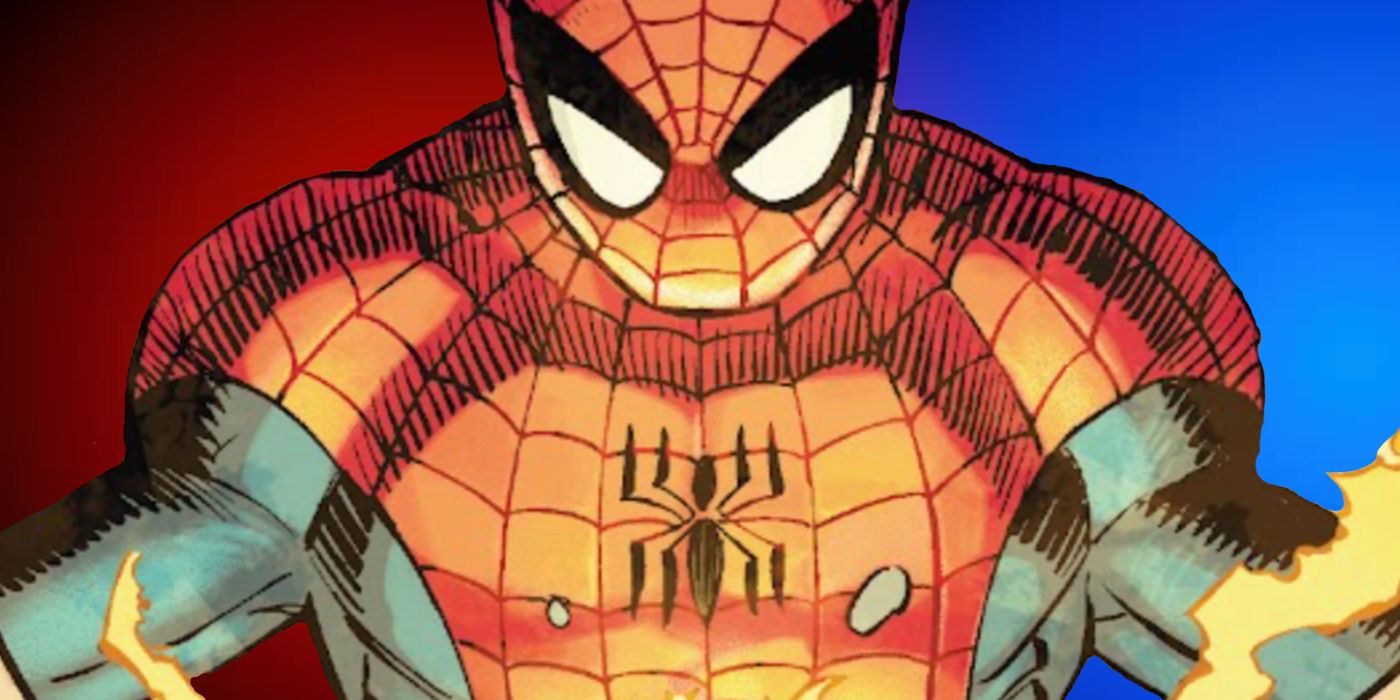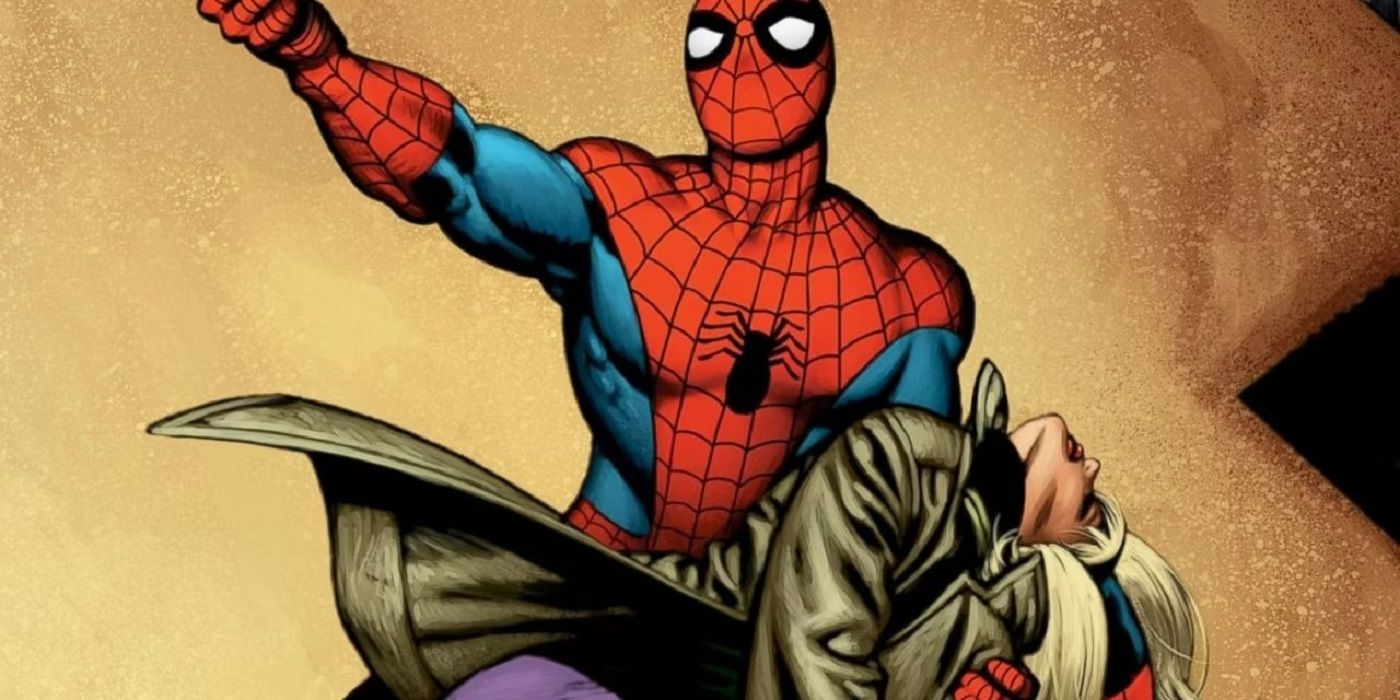As one of Marvel’s most iconic characters, Spider-Man has enjoyed a long history full of trials and triumphs. Peter Parker’s come a long way since his initial debut in Amazing Fantasy #15 by Stan Lee, Steve Ditko, Stan Goldberg, and Artie Simek. Similarly, Spider-Man’s comics evolved with the times, keeping things fresh for current readers. When comparing today’s comics to Spidey’s earliest issues, several oddities stand out.
Spider-Man’s powers were very different in his earliest comics. More often than not, his powers catered to the plot and allowed him to perform unbelievable feats like use his spider-sense to figure out which hotel room someone was staying in. Aside from his powers, various details about Peter Parker’s personal life make less sense the more readers think about them. Marvel continued to flesh out Spider-Man’s story over the decades, but these improvements only highlighted how bizarre his early comics were.
Updated by Sage Ashford, July 8th 2023: Like many comics, early Spider-Man stories were still trying to figure out who the character was. This list has been updated to include a few more weird details that aren’t present in modern Spider-Man comics.
10 Peter Parker Had No Friends
When people think of Peter Parker’s high school years, they think of a kid who was nerdy but still had a small social circle of close friends. This comes from years of animated series and films convincing viewers that Peter Parker had a decent social life. The early Spider-Man comics tell another story.
Instead of having a private circle of friends, Peter’s high-school years were spent alone. In fact, most of his high school classmates bullied him and laughed at him for being weak. Even Peter’s high school crush Liz Allan ridiculed him at every turn.
9 Uncle Ben Didn’t Create The “With Great Power…” Quote
The quote “With great power, there must also come great responsibility.” is a defining statement not only for Spider-Man lore, but for Peter Parker. These wide words drive Peter to be a hero and inspire him to make constant sacrifices to do the right thing. Thanks to media adaptations like Spider-Man: The Animated Series, many people erroneously believe this quote was originally uttered by Uncle Ben.
However, in the original Amazing Fantasy #15 comic, Uncle Ben said no such thing. The famous quote actually came from the comic’s narration boxes at the end of Spider-Man’s debut issue. It would be decades before Marvel retconned this fact and gave the line to Uncle Ben, influencing the quotes delivery in the 1992 cartoon and the 2002 film.
8 Peter Sounded Like A Villain Before Getting His Powers
Most of the time, superheroes behave in a noble manner even before they’re imbued with special powers. This trope showcases that true heroism comes from within, not from the fancy abilities someone possesses. When Marvel created Peter Parker, they designed him differently than most heroes of his era or of the Golden Age.
A lonely high school nerd, Peter faced relentless mockery because of his intelligence and standoffish behavior.
Peter Parker wanted to get payback on his classmates for not seeing how special he was. This mindset resembled a villain’s outlook more than it did a young hero. Peter’s desire to gain people’s respect played into his initial attempts to make money off of his abilities rather than using them for other people’s benefit. In the end, Peter’s failure to save Uncle Ben changed him. While Peter’s mindset ran contrary to most “normal” heroes, it felt true to real life, helping Spider-Man resonate with readers.
7 Spider-Man Was Annoyingly Cocky
After years of being bullied, Peter Parker was eager to prove himself to everyone after he gained his powers. Even after deciding to use his powers for good, Spider-man possessed an air of cockiness that wasn’t as prominent in later stories. Things got so bad that Spidey even picked a fight with the Human Torch just to embarrass him in front of his girlfriend.
By the end, Spider-Man got into a fight with most of The Fantastic Four. Even when the fight was resolved, Peter couldn’t help but incult them as he swung off. These days, Peter’s numerous losses have humbled him, causing him to take the job much more seriously. Similarly, Spidey has no interest in looking for more trouble than he already has on his plate.
6 Spider-Man’s Spider-Sense Worked More Like Radar
Peter Parker’s “spider-sense” has been pretty well-defined for years. It warns Spider-Man when he’s in danger, allowing him to react before it the calamity happens. Combined with his agility, only the most talented and quickest fighters even stand a chance of hitting him.
That’s not always how Spider-Man’s abilities worked in the early comics. Peter Parker’s spider-sense was more nebulous, almost to the point the powers didn’t make sense. While it could warn him about danger, it also worked like radar, allowing him to track villains down across the entire city. Supervillains even discovered they could “hack” into Peter’s spider-sense when they wanted to send him a cryptic message.
5 Spider-Man Didn’t Debut In His Own Comic
Major teams like The Fantastic Four and significant characters like Daredevil all debuted in their own comics. By contrast, Spider-Man’s first appearance wasn’t in The Amazing Spider-Man. Instead, Spider-Man made his debut in Amazing Fantasy #15.
Spider-Man wasn’t the only iconic Marvel character who debuted in someone else’s series. However, considering the success Spidey would become, it’s interesting that he didn’t get the same treatment as the likes of the X-Men. Regardless, Spider-Man’s appearance in Amazing Fantasy #15 remains one of the best Marvel hero debuts.
4 Spider-Man’s Original Issue Was A Crossover
Not only did Spider-Man debut in a different comic, but even when he was gifted with a solo outing, it launched with a crossover story. That was relatively common at the time, and helped Marvel boost sales when something big was happening.
Looking back now, it seems absurd to suggest that Spider-Man would require other heroes to become more interesting. Initially relying on the Fantastic Four, Spider-Man more than proved he could support his own comics in the months and years to come. Despite Peter Parker becoming one of Marvel’s most influential characters, early comics didn’t allow for faith in an untested character.
3 Spider-Man Wasn’t As Funny
One of Spider-Man’s defining traits is his constant quipping. While one-liners were still present in the early days of Spider-Man, this didn’t set Peter Parker apart from the other heroes of his day. In time, Spider-Man’s brand of humor has earned him a reputation as the jokester of the Avengers and for annoying his teammates.
None of that character work was being established in quite the same way in the earlier Spider-Man stories. Many comics have a strange tone by comparison, especially for readers who aren’t used to seeing Spider-Man acting so seriously.
2 Peter Parker’s Costume-Making Skills
It’s pretty weird that Peter Parker immediately made a fantastic costume he could take into battle with him. In the years since, his origin story detailed the fact that he was an amateur at costume-designing and slowly refined his skills while mastering life as a vigilante. Peter made mistakes when designing his suit and learned to mend them.
In the earliest comics, Peter Parker was instantly brilliant at costume design, sewing together the iconic Spider-Man suit in one night. While Spidey’s original comic deserves more attention, the moment does stand out like a sore thumb; especially since so many other heroes can’t craft something as amazing on their first try.
1 Spider-Man’s Comics Delved Into Heavy Topics
Comics have had a difficult time with censorship. In the earlier days of the industry, there was still a lot of control over what topics might be discussed. Spider-Man earned a reputation as a positive, upbeat character, making it strange when anything adult-orientated surfaced in his comics.
Despite his reputation for being light-hearted, Spider-Man’s early stories were anything but. Drugs, drinking, death, and other serious topics all appeared in his initial first comic runs, demonstrating that Marvel wanted Spider-Man to tackle real life. While the struggles Peter and his friends faced made them relatable, they’re jarring facts to anyone who primarily thinks of Spider-Man as a kid-friendly hero.
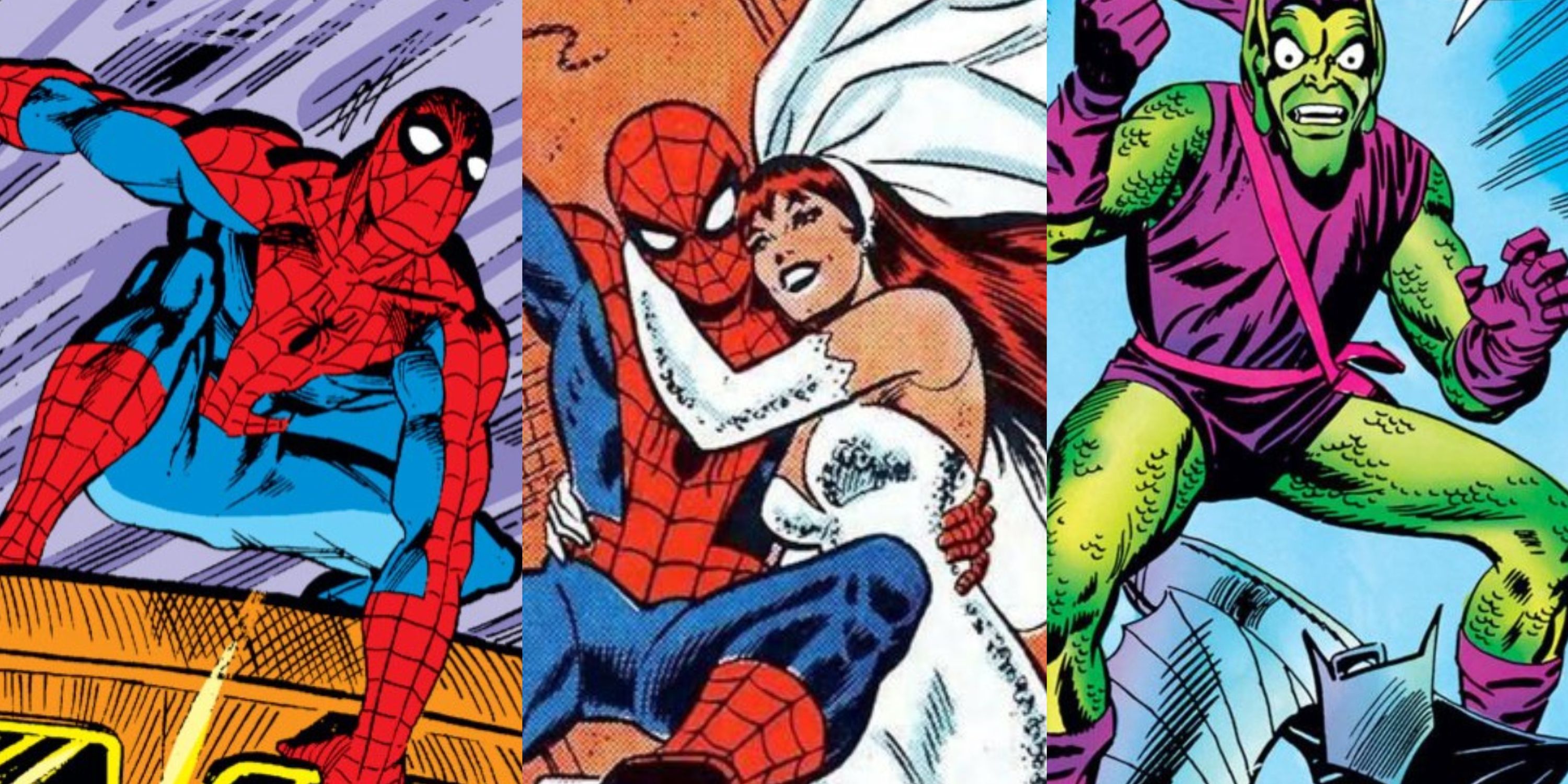






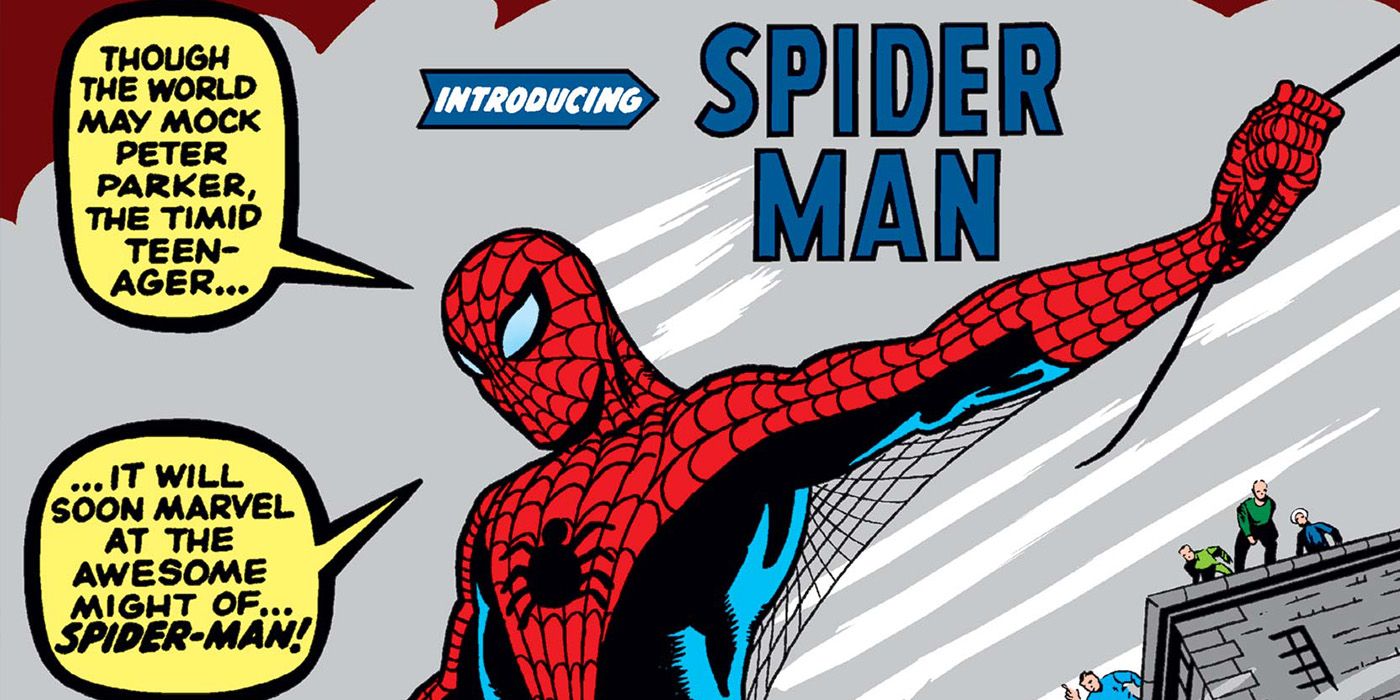
.jpg)
